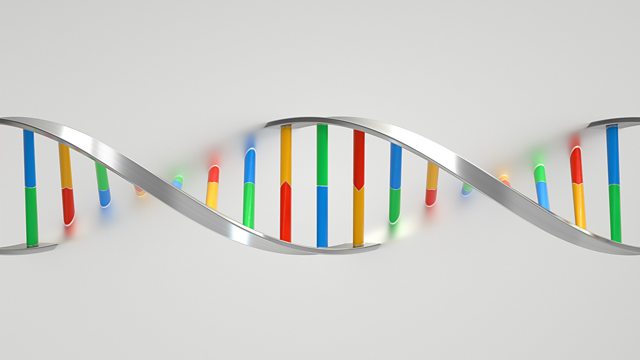The silence of the genes
James Gallagher reveals the ups and downs in the story of how a Nobel prize winning discovery of RNA interference has led to useful drugs in less than a quarter of a century.
In summer of 2019 NICE approved the use of a completely new class of drugs: the gene silencers. These compounds are transforming the lives of families who have rare debilitating – and sometimes fatal - diseases such as amyloidosis and porphyria. James Gallagher, ±«Óãtv Health and Science Correspondent, reveals the ups and downs in the story of how a Nobel prize winning discovery of RNA interference has become a useful drug in less than a quarter of a century.
Professor Craig Mello, one of the winners of the Nobel Prize in 2006 for revealing the mechanism of RNA interference, and Professor Mark Kay of Stanford University, look back at the discovery.
Sue Burrell, who has acute intermittent porphyria, explains how a gene silencing drug has reversed her symptoms of extreme pain. Dr Carlos Heras-Palou, an orthopaedic surgeon at Royal Derby Hospital, who has hereditary transthyretin-mediated amyloidosis has had his career saved by taking another gene silencing drug, patisaran. It has restored the feeling in his hands he had lost and means that he can continue to carry out operations. Professor Philip Hawkins, of the National Amyloidosis Centre at the Royal Free Hospital, tells James about how his team showed that this drug reverses some of the symptoms caused by the disease.
As well as treating these rare conditions James discovers that this approach is being tried in untreatable neurodegenerative conditions. He talks to Professor Sarah Tabrizi of UCL about her research into stopping Huntington's disease, which is currently inevitably fatal.
Akshay Vaishnaw of the biotech company Alnylam talks to James about the ups and downs of developing effective RNAi drugs.
And Professor John Kastelein of Amsterdam University discusses the findings of a study into finding out if gene silencing could help prevent one of the biggest global killers; bad cholesterol that causes heart attacks and stroke.
Picture: DNA molecules, structure of the genetic code, 3d rendering,conceptual image, Credit: Andy/GettyImages
Last on
More episodes
Broadcasts
- Mon 6 Jan 2020 20:32GMT±«Óãtv World Service Australasia, Online, Americas and the Caribbean, UK DAB/Freeview & Europe and the Middle East only
- Mon 6 Jan 2020 21:32GMT±«Óãtv World Service News Internet & East Asia only
- Tue 7 Jan 2020 05:32GMT±«Óãtv World Service Online, UK DAB/Freeview, News Internet & Europe and the Middle East only
- Tue 7 Jan 2020 06:32GMT±«Óãtv World Service Australasia, Americas and the Caribbean & South Asia only
- Tue 7 Jan 2020 07:32GMT±«Óãtv World Service East and Southern Africa & East Asia only
- Tue 7 Jan 2020 11:32GMT±«Óãtv World Service West and Central Africa
- Tue 7 Jan 2020 14:32GMT±«Óãtv World Service Australasia
- Tue 7 Jan 2020 18:32GMT±«Óãtv World Service East and Southern Africa, South Asia & West and Central Africa only
- Mon 13 Jan 2020 00:32GMT±«Óãtv World Service except South Asia
Space
The eclipses, spacecraft and astronauts changing our view of the Universe
The Curious Cases of Rutherford and Fry
Podcast
-
![]()
Discovery
Explorations in the world of science.



